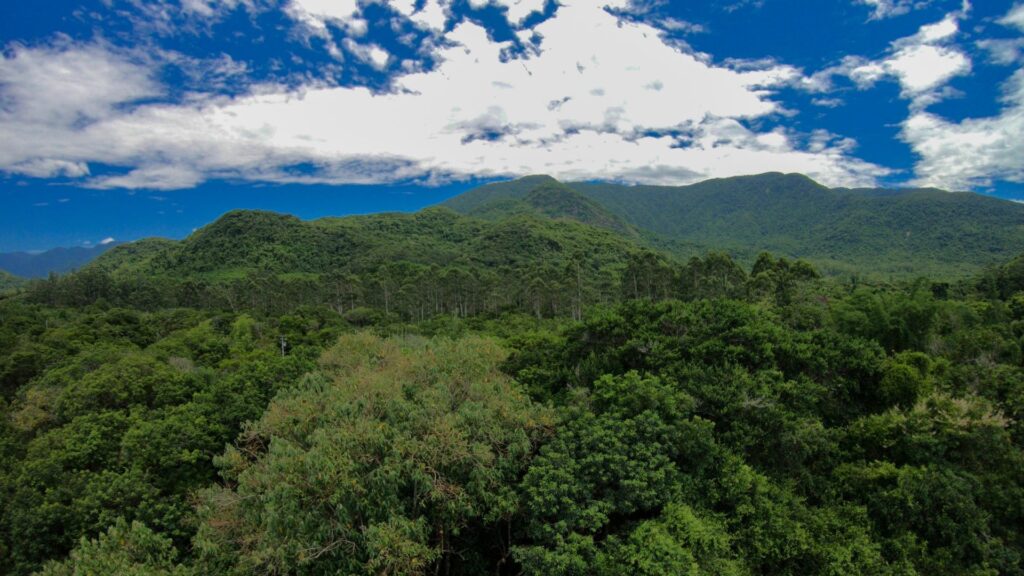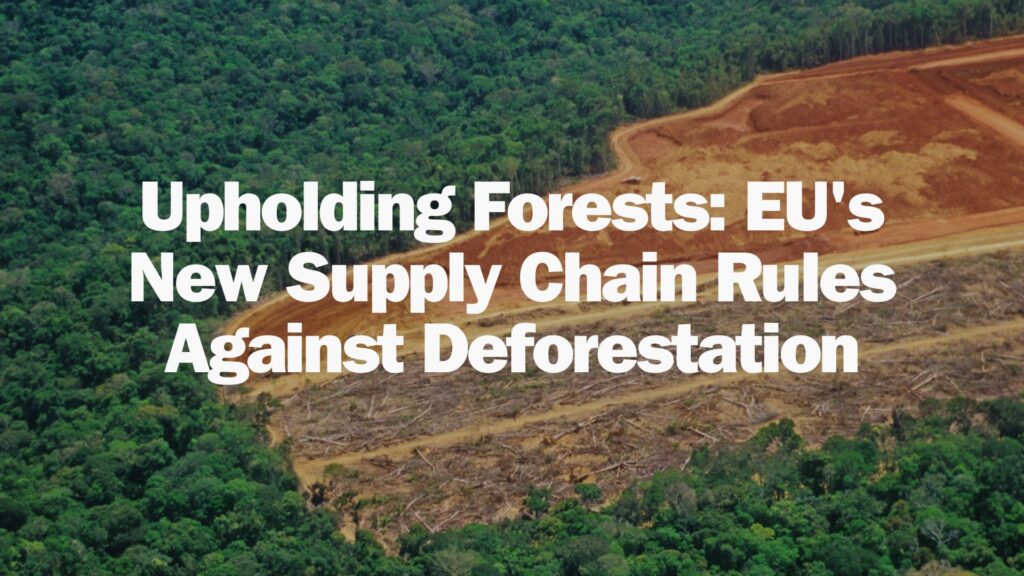Forests for Life: The Importance of Action on International Day of Forests
A Call to Action and Reflection As we celebrate the International Day of Forests this Thursday, March 21st, it’s more than a moment for contemplation—it’s a rallying cry for proactive engagement. This year shines a spotlight on Sustainable Development Goal 15: Life on Land, emphasizing forests’ pivotal role in sustaining biodiversity, underpinning ecosystems, and preserving the delicate balance vital to our planet’s wellbeing. In the face of global challenges like climate change and environmental degradation, initiatives such as the Green Initiative Climate Positive Certification and the Forest Friends Certification are notable for the dedication of businesses and individuals to reforesting and rejuvenating essential ecosystems in some of the planet’s most biodiverse areas. Pioneering Reforestation Efforts The verdant expanses of the Península de Osa in Costa Rica, stretching to Tambopata and Chaparrí in Peru, are witnessing the seeds of hope and rejuvenation being sown by Green Initiative Forest Friends. These regions, renowned for their abundant biodiversity, are transforming into symbols of hope and regeneration through the joint efforts of local communities, businesses, and the emerging field of regenerative tourism. The backing from these entities magnifies the impact of reforestation projects. It serves as a blueprint for sustainable development that can inspire others. Peninsula de Osa, in Costa Rica, houses 2.5% of global terrestrial biodiversity. Peninsula de Osa is considered one of the most biodiverse regions, harboring 2.5% of the global terrestrial biodiversity. This megadiversity has received the region’s attention from biologists, primatologists, botanical collectors, and conservationists. It has the most significant wetland ecosystem and mangrove forests in Central America. By planting trees on Peninsula de Osa, we aim to protect animal and tree species, including several threatened species from the IUCN Red List, such as the endangered Central American Squirrel Monkey, also known as Mono Titi, which is threatened mainly by deforestation for agriculture and development, leading to a decline in their extent of occurrence and area of occupancy of 60% over the last 27.5 years. Our restoration initiative aims to reinforce the growing wildlife corridor between the Osa Peninsula and the Talamanca Mountains, which the Osa Conservation Project protects. Local inhabitants receive training and incentives to preserve the ecosystem and engage in sustainable harvesting practices as part of our restoration efforts. Click here to become a Forest Friends certified partner or individual. Tambopata, in Madre de Dios, is a region considered to be the capital of biodiversity in Peru, representing 5% of all biodiversity in the world. The Madre de Dios rainforest is formed by a tremendous Amazonian plain or low jungle; it is one of the wealthiest life formations on earth, with a high plant biodiversity of up to 300 tree species/ha (Gentry, 1988). The department of Madre de Dios has been given the title of “Capital of Biodiversity of Peru” through Law No. 26311, in the merit of its natural wealth. By planting trees in Madre de Dios, we aim to protect animal and tree species, including several threatened species from the IUCN Red List, such as the Jaguar, which is threatened by suspected declines of 20-25% in its population caused by habitat quality decline or fragmentation. Since 2008, the threats to the Jaguar, on a global scale, have continued or intensified. Therefore, our restoration efforts aim to reinforce the Vilcabamba Amboro wildlife corridor that spans the southeastern region of Madre de Dios. Local inhabitants receive training and incentives to protect the ecosystem and engage in sustainable harvesting practices as part of our restoration efforts. Click here to become a Forest Friends certified partner or individual. Chaparrí, in Lambayeque – Peru, is a region with underrepresented dry forest ecosystems. The Chaparri Ecological Reserve, located in the Equatorial Pacific region in Peru is a seasonally dry forest managed by the Muchik Santa Catalina Community of Chongoyape. Seasonally dry forests are amongst the most endangered ecosystems, with less than 10% of their original extent remaining in Latin American and Caribbean countries. The Equatorial Pacific region is also known for a remarkable species richness and level of endemism. By planting trees in Lambayeque, we aim to safeguard animal and tree species including several threatened species from the IUCN Red List such as the Andean Bear which is threatened by habitat degradation, given an approximate 30% of habitats are unsuitable for inhabitants due to lack of connectivity. Habitat suitability is also greatly decreased by human development activities including but not limited to; exploration for oil or expansion for agriculture. Therefore, our restoration efforts aim to reinforce the underrepresented ecosystems in the Chaparri Ecological Reserve. This reserve is in dire need of conservation due to several incidences of urban invasion and extended periods of drought. As part of our restoration efforts, local inhabitants receive training and incentives to protect the ecosystem and engage in sustainable harvesting practices. Chaparrí Emblematic Species Wildlife: Andean Bear, Andean Condor and the Puma.Flora: Palo Santo, Sapote and Huayacan. Click here to become a Forest Friends certified partner or individual. Strengthening Environmental Conservation Through Partnership The collaboration from businesses and individuals in environmental initiatives highlights the significance of united efforts in conservation. Those organizations investing in reforestation not only aid in carbon offsetting but also exhibit a commitment to corporate social responsibility, bolstering their brand and engaging stakeholders. Meanwhile, the Travel and Tourism Market represents an enormous opportunity for more tourists to positively affect the ecosystems they visit, ensuring their environmental footprint is beneficial through Regenerative Tourism. Regenerative tourism is an approach to travel and tourism that goes beyond the principles of sustainability. Instead of merely seeking to minimize the negative impacts of tourism on the environment and local communities, regenerative tourism aims to actively improve and regenerate the ecosystems, cultures, and economies of the destinations visited. It focuses on meaningful experiences that foster a deep connection between tourists and the destination, encouraging a sense of responsibility and participation in local conservation and cultural preservation efforts. It promotes practices that restore nature, rebuild social systems, and revitalize economies in ways that are holistic, inclusive, and forward-thinking. Businesses across
Forests for Life: The Importance of Action on International Day of Forests Read More »



